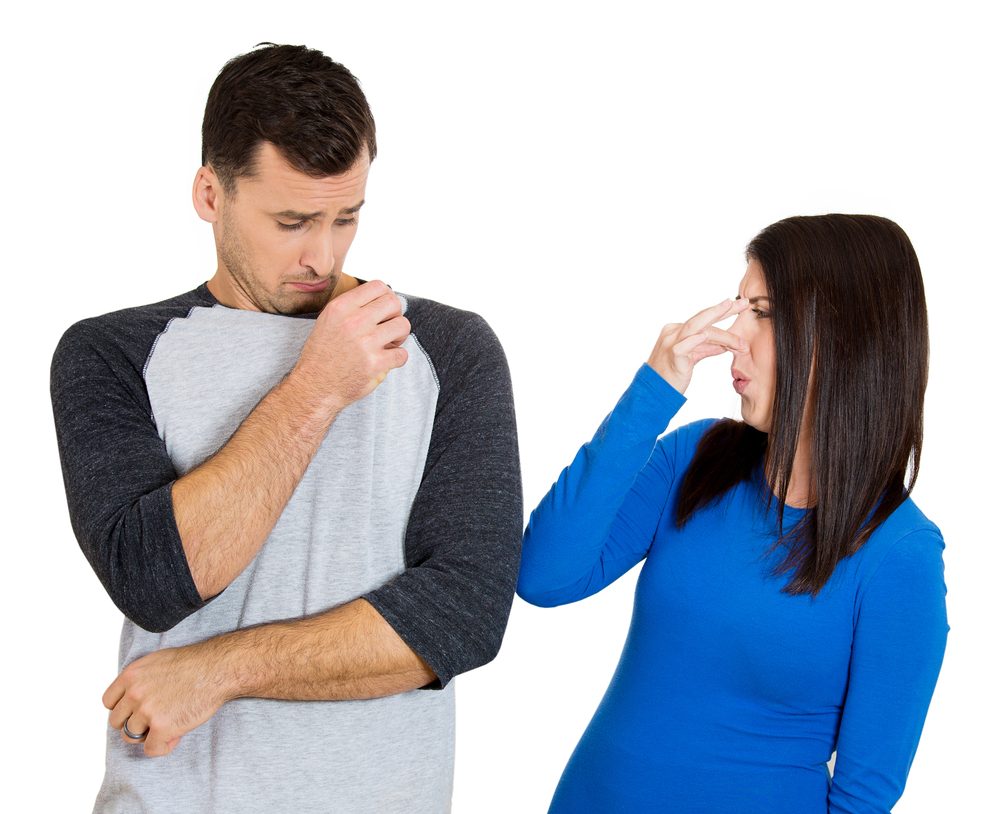Sweat is also known as perspiration. It flows out the skin to cool us down if our body temperature is getting higher than the usual 37º Celsius.
There are two types of sweat glands:
- Eccrine glands- It is found all over the body in the deeper layer of the skin (the dermis). There are lots of them on the palms of our hands, the soles of our feet, our armpits and on our scalp.
- Apocrine sweat glands- These are found in armpits and in the genital and anal area (your ‘private’ bits). The exit of these glands is into a hair follicle because they do not have their own pore. These glands start working when you reach puberty. They make a thick, oily fluid different to the sweat on other parts of your body.
Smelly sweat mostly comes from the bacteria feeding on the oils in sweat under the arms or groin. This sweat gets onto the clothes we wear and if we don’t wash and change underclothes then the smell gets stronger.
Your feet may make a lot of sweat and bacteria can get a really good feed if they hang out inside your socks and shoes. Hence, the worst smell can be from our feet. Spicy foods and garlic can change the smell of sweat too.


